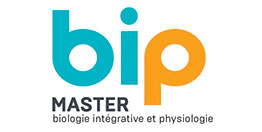M2 Nutrition, Quality and Health
Specialty Directors: Véronique Bereziat and Khadija El Hadri
Presentation of the specialty
In this specialty, we deal with human nutrition from fundamental and public health standpoints. The rise in diseases linked to nutrition, such as obesity and diabetes, and the complications associated with them, must be seen in relation to changes in eating habits. Indeed, in developed countries, we are seeing not only a marked increase in caloric intake, but also a dangerous drift in terms of the quality of the nutrients ingested. By contrast, undernutrition is a problem observed in developing countries, but also in certain deprived populations and elderly individuals in Western countries. In this context, access to high-quality food has become a major societal demand. Recent health crises have shown that fears (whether or not justified) remain concerning the origin and quality of foods.
In this master’s specialty, we provide training in the domains of food hygiene, quality and safety, nutrition and health communication, and research and development in nutrition. The relationships between diet and human health are at the heart of this training.
Objective of the training:
The objective of this specialty is to provide students with the skills required to evaluate future strategic, economic, industrial and societal issues relating to nutrition.
Students are sensitized to the health impact of nutrition, through molecular, cellular and integrated aspects of nutritional research.
This specialty allows for the professionalization of students in the theoretical and practical domains of food quality and sanitary safety, nutritional communication, or nutritional innovation and R&D, with the support of more than 80 companies, institutions and start-ups. The students thus acquire the knowledge and skills required for:
- Analyses of the relationships between diet, quality and health, the preventive role of diet, and an understanding of the pathophysiological mechanisms underlying nutritional diseases
- Evaluation and expert opinion concerning regulatory questions, the analysis of dietary dangers and risks and their management
- Project management, teamwork, nutritional innovation and written and oral communication, in both French and English.
MASTERS 2 - SEMESTER 1 (M2S3): The course units for M2S3 are detailed in the booklet for the BIP master’s course.
MASTERS 2 - SEMESTER 2 (M2S4): Placement in a company in France or abroad, for six months.
